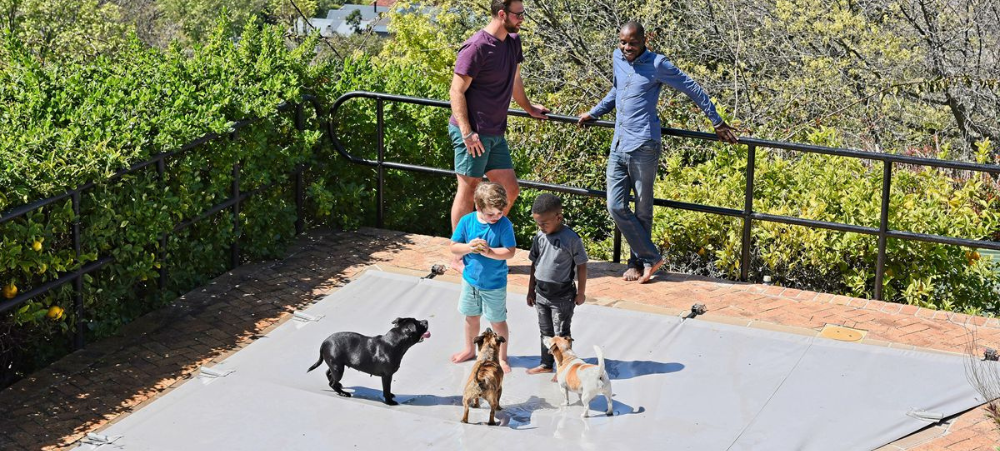If so, you’re part of the remarkable sandwich generation—individuals balancing the unique responsibilities of raising or supporting their children while also caring for aging parents. This dual role, while deeply rewarding, comes with its share of challenges, especially when maintaining quality communication within the family.
One critical yet often overlooked aspect of this dynamic is hearing health, and our NB Hearing and Balance team is here to support you throughout this journey as the family caregiver.
We understand that good hearing is essential for fostering strong relationships and creating a safe, connected home environment. By addressing the hearing needs of both children and aging parents, the sandwich generation can create a more enriching and meaningful family dynamic.
The Quality of Hearing in Relationships
Hearing is fundamental to communication, and communication is the bedrock of relationships. For children, clear communication fosters learning, emotional development, and connection. For aging parents, maintaining the ability to hear is crucial for safety and sustaining meaningful interactions with their family, including their grandchildren.
However, hearing loss is often gradual and can go unnoticed until its effects become significant. For your aging parents, untreated hearing loss can lead to frustration, isolation, and strained relationships – and obstruct their ability to build meaningful connection to their own grandchildren! Children who have trouble communicating with their grandparents, stop talking to them and lose out on building those cherished bonds.
Why is loss of quality communication between grandparents and grandchildren such a common problem?
On the Side of Grandparents:
Hearing loss that is driven by the natural ageing process involves a slow loss of access to higher frequency sounds. Loss of the ‘pieces’ of speech in the higher frequencies (for example, in English – the consonants s, t, p, k, th, f, sh, ch) creates gaps in the units the brain receives, resulting in a greater need to wait for a larger phrase (multiple words), or use the context of the conversation, to somewhat retrospectively ‘fill in the missing pieces’. It is like playing hangman with sound – needing many more ‘clues’ in the communication to fill in those missing links, and it slows down our processing speed.
In addition, as we naturally age, our processing slows down a little anyway! So, the extra time required to fill in missing pieces, can result in a grandparent lagging behind the pace of the conversation, gaining understanding milliseconds later than a younger, normal-hearing listener, and preventing them from fully participating. The neurological reorganisation (called ‘cross-cortical reorganisation’) that occurs in the presence of hearing loss can also increase sound sensitivity to louder sounds or prevent us from coping in noise, leading to avoidance of groups and social contact. Now, we have fewer opportunities to practice sound pattern recognition, which ALSO slows down processing skills!
On the Side of the Grandchildren:
Younger children, with their rapid processing speeds (think cartoons!) speak very quickly and often have high-pitched voices. They can also have developing speech patterns that are not yet mature and be pretty noisy! The quality and speed of their communication is in direct contradiction of what Grandma and Grandpa need.
Older children may be using their vernacular – unfamiliar words that have limited or different meanings to those same words used a generation or two ago, which confounds both parents and grandparents, and makes the communication dependent on focussed listening for adequate understanding.
How exhausting!
Families Thrive when Hearing Health is Prioritised
Early intervention for hearing problems will allow grandparents to buttress their communication skills and sound pattern recognition; avoid some of the neurological changes that occur during longer-term, untreated hearing loss, and ensure that they can actively participate in their grandchildren’s lives. Reading bedtime stories, sharing family traditions, or engaging in heartfelt conversations link your parents to your children, and you can benefit from the joy and support that comes from flourishing intergenerational connection.
The Sandwich Generation’s Unique Role
If you’re a parent in the sandwich generation, addressing the hearing needs of your children and your aging parents may feel like just another item on an already overwhelming to-do list. Yet, this responsibility is an opportunity to significantly contribute to your family’s holistic well-being and reduce communicative stress in the long term.
1. Healthy Hearing Creates a Safe Environment
For aging parents, treated hearing loss mitigates safety concerns, such as any difficulty hearing alarms, phone calls, the direction of oncoming traffic – or even the call of a grandchild on a playground. Ensuring their hearing is optimised creates a safer home environment for all. Young children also benefit when their home is filled with attentive and communicative adults, creating a nurturing and secure atmosphere.
2. Strengthening Bonds
Hearing aids and assistive devices can empower grandparents to actively participate in family life. Improved hearing enables enjoyment of the simple yet profound joys of grandparenthood—listening to a grandchild’s laughter, cheering them on at their chosen sports, or offering advice during heart-to-heart conversations. As a sandwich-generation parent, you can feel reassured knowing that these relationships are thriving.
3. Setting an Example
By prioritising hearing health, you demonstrate the importance of proactive care to your children and your aging parents. This forward-thinking approach fosters a family culture of valuing your parents’ involvement in your life. You help them to reduce feelings of isolation and inadequacy, nurture their confidence, well-being, and sense of belonging.
Technology as a Bridge Between Generations
You should know that modern hearing solutions are more advanced and discreet than ever. Devices today can be customised to individual needs and connected to smartphones and other tech, offering seamless integration into daily life. For example:
- Many hearing aids can connect to home security systems or emergency alerts, offering peace of mind to families.
- Devices with Bluetooth capabilities allow grandparents to enjoy phone calls, video chats, and even bedtime stories read by their grandchildren from miles away.
- Features like directional microphones or noise reduction make it easier for aging parents to focus on conversations in noisy family settings.
These advancements can help your parents embrace technology that enriches relationships and improves the quality of life for all.
Compassion and Care: A Family-Centred Approach
The journey of navigating family life as part of the sandwich generation requires empathy, patience, and thoughtful planning. Encouraging aging parents to address their hearing loss may not always be easy—it is a sensitive subject for many. However, approaching the conversation with compassion can make all the difference.
Start by emphasising the benefits of better hearing, such as feeling more connected to loved ones or being able to fully participate in family events. Share how much their presence and engagement mean to their grandchildren, and highlight the strides technology has made in making hearing aids more effective and discreet.
At NB Hearing, we are here to support families through every step of this journey. Our team is dedicated to offering family-centred care that prioritises the unique needs of individuals within the intergenerational family dynamic.
The Sandwich Generation; Moving Forward Together
Hearing is not just about sound; it’s about connection, understanding, and the stories that bring families together. When you take steps to ensure that every family member can hear and be heard, you pave the way for a future filled with meaningful interactions and lasting memories.
Let NB Hearing be part of YOUR family’s story. Let us ensure that every voice in your family is heard. Contact our offices if you need help with enriching the quality of your family life by improving hearing and balance health. We have offices conveniently located across Cape Town, including Durbanville, Noordhoek, Hout Bay, Wynberg and Sea Point.
- Tuning Into Sound: How Your Baby Hears You in the Womb - September 3, 2025
- Winter Listening: Outdoor Sound Play for Children’s Growth - July 16, 2025
- Can My Baby Really Hear Me Speaking? - May 1, 2025





